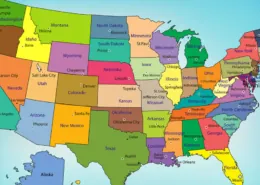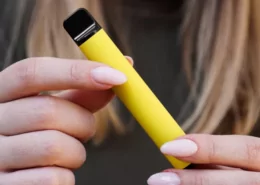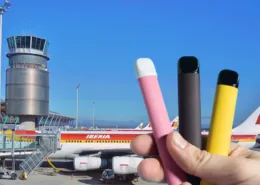How UK Vaping Laws Differ From Other Countries
The UK maintains relatively light-touch regulations on e-cigarettes versus European counterparts and many other countries, according to a new analysis from the free market-oriented Institute for Economic Affairs (IEA) think-tank. However, amid rising usage concerns, Britain may impose further vaping restrictions following wider international policy shifts.
Minimal Vape Taxes and Ad Rules Rank UK Top Regionally
The IEA study surveyed vaping laws across 30 European nations using a 100-point score reflecting regulatory burdens. Researchers found:
- The UK tallied 92 points alongside Ireland boasting the joint most liberal policies regionally.
- British rules only constrain certain advertising forms and do not levy taxes tailored specifically to vaping products.
- This contrasts with highly strict UK tobacco regulations such as standardized packaging mandates and bans on displaying cigarettes to youth.
Children’s health experts urge aligning vape controls with tobacco given worries around appeal and access for minors. For example, over 200 organizations including medical bodies wrote the government urging similar retail prohibitions.
“Allowing e-cigarette sales to young people contradicts everything we know about stop smoking campaigns and harm reduction,” the groups argued. “It introduces children to nicotine when otherwise they would be nicotine naive.”
Vaping Bans Rapidly Spreading Globally
While the UK position remains relatively permissive presently, the global landscape shifts rapidly towards prohibition amid growing adoption fears.
Both France and Austria’s parliaments moved to ban most vaping devices by mid-2023. Germany, Greece and the Netherlands enacted bans on all nicotine or flavored e-liquids to discourage youth uptake.
Outside Europe, Australia only allows prescription vape access after ending imports of nicotine e-cigarettes and liquids from October 2023. Neighboring New Zealand likewise tightened rules around marketing and imposed buffer zones on sales near schools.
Even in the U.S. and Canada where cigarette alternatives see high penetration, various measures curb vaping:
- Quebec province imposed Canada’s first ban on flavored vape liquid sales in a bid to stem youth usage.
- The U.S. national minimum purchase age is 21 as of late 2019 with 13 states now restricting flavors attractive to teenagers.
This global tightening reflects policymaker struggles balancing vape risks with benefits as smoking alternatives. However the mounting clampdown leaves the UK approach increasingly isolated.
UK Weighing Future Regulations Amid Growing Concerns
With global winds shifting, the comparatively permissive UK rules may not endure as worries around youth access and plastic waste impacts grow.
Leading British pediatricians argue vibrant colors and candy-like tastes risk hooking more children on nicotine akin to past tobacco tactics. One children’s doctor told Parliament “We face sleepwalking into a public health catastrophe” comparable to historic cigarette marketing around vape flavors and design.
Likewise environmental campaigners highlight disposal challenges stemming from popular single-use devices that get easily tossed after one nicotine cartridge.
These factors seemingly push the UK government towards similar flavor prohibitions or sales limitations adopted abroad. But policymakers stress evidence showing e-cigs aid adult smoking cessation, which complicates outright bans.
The intensifying debate illustrates the tricky tradeoffs regulators face balancing youth access concerns with maintaining reduced harm alternatives for inveterate adult smokers unable or unwilling to quit cigarettes.
There are no easy policy answers in this arena. However striking an optimal balance promises growing pains for UK vaping regulations still rated among the more liberal internationally.
- HHC Vapes: What Are They & Are They Safe? - July 31, 2025
- Cannabis and Vape Shop Workers Rank Happiest in Nation - July 31, 2025
- Richmond, VA, Restricts New Vape & Tobacco Shop Locations - July 31, 2025









